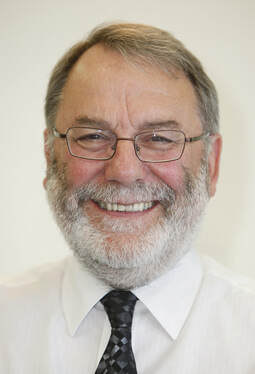Physics of Information Colloquium
Quantum Technology for a Networked World:
Clocks, GPS and Metrology
Sir Peter Knight
(Quantum Metrology Institute, UK National Physical Laboratory
& Blackett Laboratory, Imperial College)
(Quantum Metrology Institute, UK National Physical Laboratory
& Blackett Laboratory, Imperial College)
Date: Tuesday 21 May 2019
Time: 16:00
Venue: VA6, Civil Engineering Building, IST, Lisbon
Time: 16:00
Venue: VA6, Civil Engineering Building, IST, Lisbon
Abstract:
Quantum Physics has focused on light, matter and their interaction, from the early days of quantum mechanics right down to the present day. Much of this work has concentrated on the nature of quantum correlations and coherence beyond what is allowed classically. Quantum Information Science in part has grown out of this progress: the quantum world allows information to be encoded, manipulated and transmitted in ways quite different from classical physics and quantum approaches to measurement to transform metrology. Now we are seeing the transition to technology, applying these insights in spectacular new ways.
Parallelism and entanglement, the characteristic features of the quantum world, enable us to perform precise measurements and to undertake information processing tasks which are peculiar to the quantum world: secure encryption, teleportation of quantum states and the speed up of certain classes of algorithms. The 21st Century has seen the emergence of a networked world, connected by global fibre-optic communications and mobile phones, with geo-location provided through GPS, and all this has changed our lives more dramatically than at any time since the industrial revolution. Quantum-enabled technology is ate the heart of this change. I will describe these developments and how the UK has invested substantially in the basic science and its exploitation. Some of these include communication systems immune to GPS jamming (of real importance for global security), as well as quantum sensors for medical applications (including cardiography, neurophysiology, etc.),
sensitive magnetometry, gyros, and geophysical surveying.
Parallelism and entanglement, the characteristic features of the quantum world, enable us to perform precise measurements and to undertake information processing tasks which are peculiar to the quantum world: secure encryption, teleportation of quantum states and the speed up of certain classes of algorithms. The 21st Century has seen the emergence of a networked world, connected by global fibre-optic communications and mobile phones, with geo-location provided through GPS, and all this has changed our lives more dramatically than at any time since the industrial revolution. Quantum-enabled technology is ate the heart of this change. I will describe these developments and how the UK has invested substantially in the basic science and its exploitation. Some of these include communication systems immune to GPS jamming (of real importance for global security), as well as quantum sensors for medical applications (including cardiography, neurophysiology, etc.),
sensitive magnetometry, gyros, and geophysical surveying.
Supported by:
Fundação para a Ciência e a Tecnologia (UID/EEA/50008/2019).
Fundação para a Ciência e a Tecnologia (UID/EEA/50008/2019).
Event poster avaliable here.


